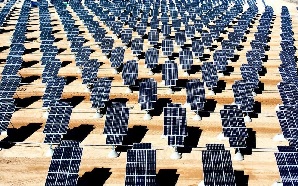
We have previously recounted Saudi Arabia’s $200bn deal with Japan’s SoftBank. Saudi Arabia’s latest gambit to transform the oil-rich kingdom under Crown Prince Mohammed Bin Salman is expected to become the world’s largest solar project upon its completion. But friction between the energy ministry and the sovereign wealth fund, two of the country’s most powerful bodies, illustrates the risk that infighting could yet hamper the kingdom’s attempt to revamp its economy. Renewables are a key pillar of Prince Mohammed’s economic reforms. With a generation capacity of 200 gigawatts, the project, which was announced after Prince Mohammed and SoftBank chief executive Masayoshi Son signed an agreement in New York, is enough to power 150m homes or four times the amount of power Saudi Arabia requires. Yet the energy ministry, which oversees the kingdom’s multibillion dollar renewables strategy, and Saudi Aramco which has provided assistance, were blindsided by last month’s announcement.
Some insiders argue that this was the result of a struggle for influence between energy minister Khalid Al Falih and Public Investment Fund chief Yasir al- Rumayyan. The venture did not stem from the unit within the energy ministry responsible for the development of renewables projects but was led by the PIF — an investor in the deal which has an existing relationship with SoftBank. One direct source said it was a powerplay by Rumayyan, who wanted a landmark deal to upstage Falih during the US visit. The PIF, which is being used by Prince Mohammed to drive reforms through high-profile investments, has grown in influence. Oil profits are now expected to be steered away from the central bank towards the fund, hoping to generate higher financial returns and help diversification. The solar deal is another sign the PIF is seizing control from entrenched power centres. – Financial Times
